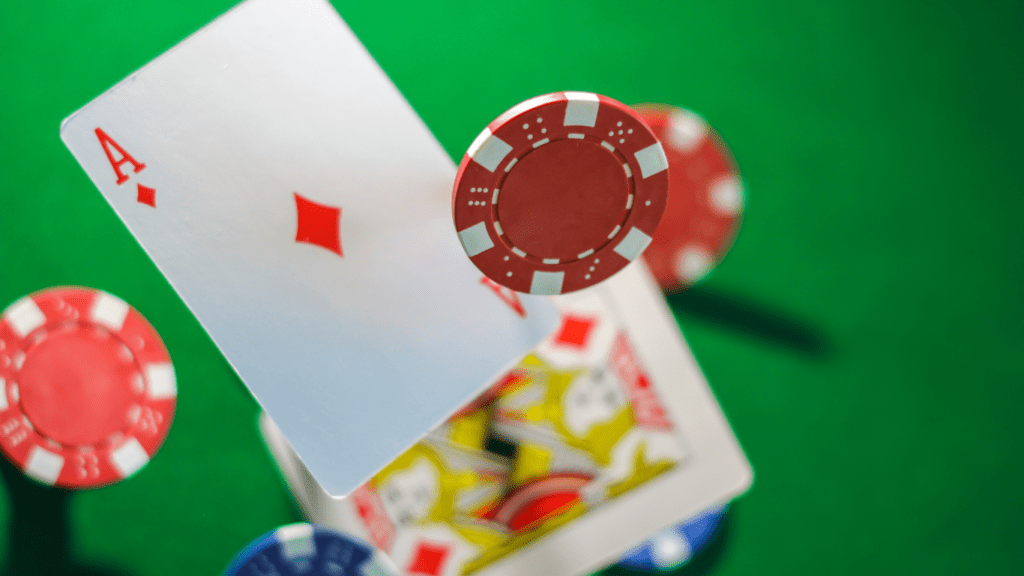Stepping into the world of poker, mastering the game goes beyond knowing the rules or having a good hand. It’s about understanding the strategic dance of position and how it can make or break your game.
In this article, I’ll delve into the critical role that position plays in dominating the poker table. Position in poker isn’t just about where you’re seated; it’s a powerful tool that can give you a significant edge over your opponents.
From early to late position, each seat offers unique advantages and challenges that can influence your decisions and ultimately your success at the table. By grasping the nuances of position and using it to your advantage, you can elevate your gameplay and outmaneuver even the toughest competition.
So, grab your chips and get ready to learn how mastering position can be the key to becoming a formidable force at the poker table.
Understanding Position in Poker
Position in poker refers to where a player sits relative to the dealer, and it plays a crucial role in shaping your strategy during a hand. It’s essential to understand the dynamics of position as it can significantly impact your decision-making process and overall success at the poker table.
- Early Position: In the early position, I have less information about other players’ hands, making it a disadvantageous spot to be in. It’s crucial to play cautiously in this position and avoid being overly aggressive without a strong hand.
- Middle Position: When I find myself in the middle position, I have a bit more information from the players in early position. This allows me to make slightly more informed decisions but still requires caution as there are players left to act after me.
- Late Position: Late position is one of the most advantageous spots at the poker table. Here, I have the most information available, as I can see how other players have acted. This enables me to play a wider range of hands and be more aggressive when the opportunity arises.
Understanding the significance of position and how to adapt your strategy based on where you sit can give you a strategic edge over your opponents. By leveraging position effectively, I can make more calculated decisions and increase my chances of success in the game of poker.
Advantages of Having Position
Having a good position at the poker table is crucial for maximizing one’s advantage over opponents. It offers strategic benefits that can significantly impact gameplay and increase the likelihood of success.
Increased Information
In poker, being in a late position provides valuable information that allows me to make more informed decisions. I can observe how other players bet and react before it’s my turn, enabling me to adjust my strategy accordingly and capitalize on my opponents’ actions.
Control over the Pot
When I have a strong position, I feel more in control of the pot. By acting last in a hand, I can better gauge the strength of my hand relative to others and decide whether to build the pot or reduce my exposure.
This control adds a layer of strategic advantage that can influence the outcome of the game in my favor.
Strategies for Dominating the Poker Table
When playing poker, it’s crucial to strategize effectively to outwit opponents and increase your chances of winning. Here are some powerful tactics to dominate the poker table:
Playing Strong Hands in Position
Executing confident and calculated moves with strong hands while in favorable positions can significantly boost your success in poker games. By playing premium hands assertively when in late position, I maximize my advantage over opponents and increase the potential of winning bigger pots.
It’s essential to capitalize on strong starting hands and leverage my position to control the game dynamics.
Mind Games and Bluffing
Poker is not only about the cards; it’s also a game of wits and strategy. Mind games and bluffing play a crucial role in dominating the poker table. In this high-stakes game, where players hide their true intentions behind their actions, mastering the art of bluffing can be a game-changer.
Bluffing involves portraying a different image than the reality of your hand. It’s a strategic move to deceive opponents and manipulate their decisions. Effective bluffing can instill doubt in opponents’ minds, leading them to fold better hands or make costly mistakes. However, bluffing requires a delicate balance of confidence and stealth to be successful.
When it comes to mind games, understanding your opponents’ behaviors and tendencies is key. Observing how they react in different situations can provide valuable insights into their hand strength and playing style. By leveraging this information, I can tailor my strategies to exploit their weaknesses and make well-informed decisions.
In the world of poker, mastering the art of bluffing and playing mind games can be a potent combination for dominance at the table. It’s not just about the cards in my hand but also about outsmarting my opponents through strategic deception and psychological warfare.



 Margarita Ventura
Senior Sports Betting Analyst
Margarita Ventura is a seasoned sports betting analyst with an impressive track record of success in the field. Known for her sharp analytical mind and meticulous attention to detail, Margarita combines her deep knowledge of sports with advanced statistical techniques to provide readers with reliable, data-backed betting strategies. Her background in sports psychology and analytics allows her to decode trends and offer unique perspectives on betting odds, player performance, and game outcomes. Margarita’s articles have become essential reading for anyone interested in maximizing their sports betting outcomes. At Pro Gamble Genius, she is dedicated to helping readers make educated bets, whether they're new to sports betting or seasoned pros. Margarita’s insights not only enhance readers' understanding of sports betting but also empower them to make confident, calculated wagers.
Margarita Ventura
Senior Sports Betting Analyst
Margarita Ventura is a seasoned sports betting analyst with an impressive track record of success in the field. Known for her sharp analytical mind and meticulous attention to detail, Margarita combines her deep knowledge of sports with advanced statistical techniques to provide readers with reliable, data-backed betting strategies. Her background in sports psychology and analytics allows her to decode trends and offer unique perspectives on betting odds, player performance, and game outcomes. Margarita’s articles have become essential reading for anyone interested in maximizing their sports betting outcomes. At Pro Gamble Genius, she is dedicated to helping readers make educated bets, whether they're new to sports betting or seasoned pros. Margarita’s insights not only enhance readers' understanding of sports betting but also empower them to make confident, calculated wagers.
